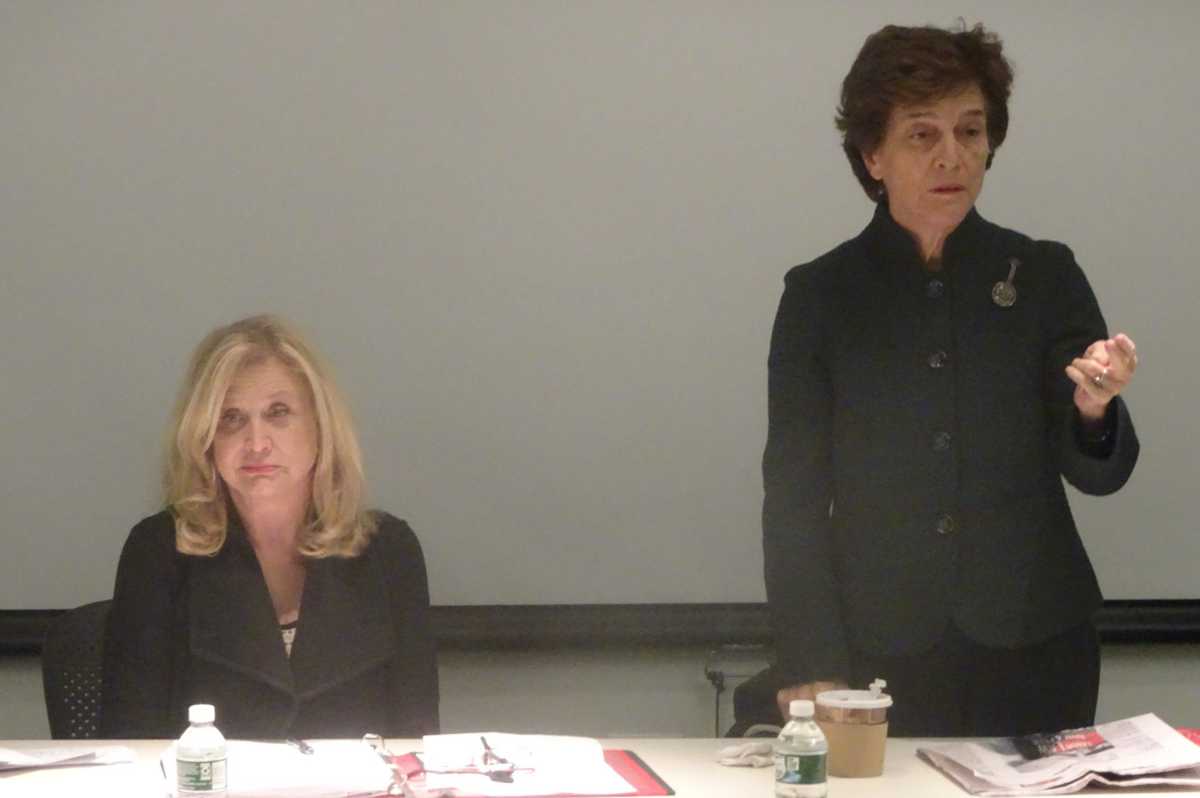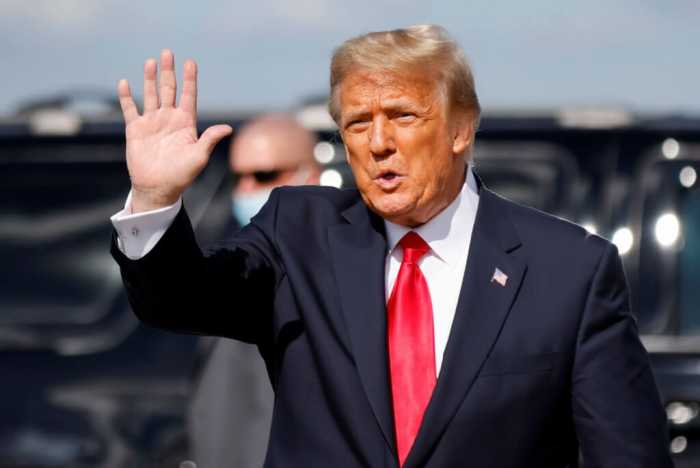In the wake of impeachment inquiries against President Donald Trump (R), countless Americans have asked the following question; why did the Founding Fathers include a clause for impeachment in the Constitution? If a president is unfit for office, couldn’t we just vote them out in future elections?
Former Representative Elizabeth Holtzman (D), author of “The Case for Impeaching Trump”, explained it thusly.
“There was a debate among the framers about impeachment,” said Holtzman. “‘What do we need impeachment for? We have elections. That’ll solve the problem.’ But that argument lost, because the majority of the framers in Philadelphia said, ‘If we have a president who’s really dangerous, we cannot wait until the next election. We have to ensure the power to remove that president and protect our democracy right now.'”
Last night, Holtzman and Representative Carolyn Maloney (D-Manhattan, Brooklyn, Queens) held a town hall meeting to educate the public about the impeachment process. The meeting took place in the Bushwick Inlet Park Community Room.
“Holtzman is really an incredible legislator and an incredible person,” said Maloney. “She has helped me pass so many bills in Congress. If I have a bill blocked, I can call up Liz and she’ll have a plan to get it through. So we’re very fortunate to have her here tonight.”
Elizabeth Holtzman began by going over the grounds on which a president can face impeachment. As she explained, the term “high crimes and misdemeanors” doesn’t necessarily refer to literal crimes. In fact, there was no criminal code at the time of the Constitution’s writing.
“The term refers to an egregious abuse of power that threatens the Constitution, the rule of law, or the liberties of the American people,” said Holtzman.
Holtzman then went over the details of the impeachment inquiry of then- President Richard Nixon (R), and explained why his actions qualified as high crimes and misdemeanors. Notably, Holtzman was an active member of the House Judiciary Committee during the Watergate scandal, and played a key role in the impeachment process.
In 1972, there was a burglary at the Democratic National Committee headquarters at the Watergate hotels in Washington, D.C. The burglars, once apprehended, were found to have a direct connection to the White House – a fact that Nixon attempted to cover up.
“And why was there a cover-up?” Holtzman asked. “Because if it came out that the White House and the president’s top people were connected to the break-in, Nixon might have lost the election. So he used the CIA to stop the FBI from investigating.”
This, she said, constituted an abuse of power – using government agencies in order to influence the results of what’s supposed to be a free and fair election.
Throughout the night, Holtzman drew several parallels between the Trump and Nixon administrations. Like Nixon, Trump is facing impeachment on the grounds of illegal election meddling. In the latter’s case, it involves charges of seeking assistance from Ukraine, a foreign government in order to discredit his political opponent, Joe Biden.
But the similarities don’t end there. As she pointed out, Nixon coerced the burglars into silence by bribing them with the promise of a presidential pardon. Trump, she said, used the same strategy to silence his former campaign chairman Paul Manafort during the Mueller probe.
“Fast forward to now; what did Trump do vis-a-vis Manafort?” asked Holtzman. “He said, ‘I’m not gonna take a pardon off the table.’ And guess what happened? Manafort stopped cooperating with the special prosecutor.’ The power to grant a pardon was used not for the benefit of the American people, but for Trump’s personal benefit, so he could stay out of jail, his top aides could stay out of jail, and he could be reelected.”
Holtzman concluded by making a critical point about Nixon’s impeachment inquiry. Nixon faced three different charges, which manifested as three articles of impeachment. The first was for the coverup of the Watergate scandal; the second was for abusing his power to obstruct justice; and finally, the third was for creating an “enemies list” of his political opponents and trying to coerce the IRS into auditing them.
She brought this up to make the point that Nixon’s downfall wasn’t the result of the Watergate scandal per se. Rather, Watergate was just one aspect of what she called “a presidency gone amok”. Similarly, she said, Trump’s high crimes and misdemeanors extend far beyond the Ukraine call, and the House Democrats shouldn’t base their argument for impeachment solely around that incident.
“It’s not just Ukraine; it’s everything,” said Holtzman. “We have to show the American people that what’s at stake here is a broad based threat to our democracy. And that includes not just the Ukraine matter, but also the obstruction of justice, and the interference with the Russia investigation. Congress has to move forward promptly, but it shouldn’t be rushed, and it shouldn’t face an artificial deadline. Information keeps coming out, and we need a strong case to present to the American people.”









